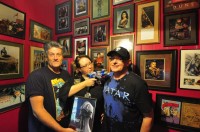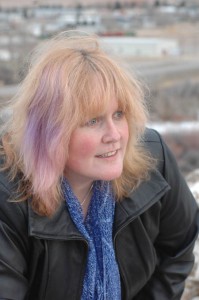 Thinking About Urban Fantasy
Thinking About Urban Fantasy
Urban fantasy is dying. Everybody seems to be saying so. Yanno, except for the people reading it, the people publishing it and the bookstores selling gobs of it.
It’s almost too good to be true. This genre of fantasy just keeps growing and expanding, with no end in sight.
The death stuff is true on one level. It’s not so easy to sell vampire fiction anymore and you definitely have to be creative and fresh with the stuff you’re writing. A lot of ground has already been covered, but so you need an original take. Shapshifters and werewolves and faeries are also looking down the same barrel. Zombies are on the rise, as are angels and demons. Soon they’ll be superseded by something else. Maybe new vampires. Maybe it will be something else entirely. But something will come.
The thing with urban fantasy—which is not so urban anymore, but I’ll get to that in a minute—is that it’s incredibly fertile ground. The possibilities seem endless. The idea that your neighbor could be a witch, or a gremlin, or a fairy is seductive. The idea that the real world can be full of magic and mystery if only you look at it just so, or turn the right corner, or pick up the right key, is equally alluring.
At the same time, you can mix in mystery, thriller, romance, the old west, political intrigue, police procedure . . . You can stir in just about any ingredient you want that makes for a good story and there are readers out there for you. It’s a lot harder to do that in most other fantasy or sf genres. I think part of that is that the everyday life, language, and settings lend themselves to all these elements and don’t seem strange or out of place. I think also, the various flavors mean that readers don’t get bored. They have lots of choices and they dine heartily on whatever appeals at the moment. Don’t want Italian food today? Have some sushi. Not in the mood for soup and bread for dinner? Have some southern BBQ. Tomorrow or next week, you’ll be in the mood for something else and the nice thing is, it will be there.
The thing about this kind of fantasy—which is called Urban Fantasy by some, paranormal romance by others, and various other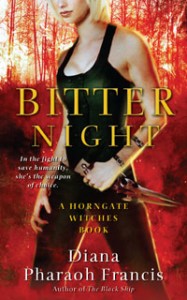 monikers—is that it has a lot to offer a wide audience. Characters are rich and emotional, the magic is interesting, there is complex and interesting worldbuilding, and you have a lot of choices and a lot of surprises in store.
monikers—is that it has a lot to offer a wide audience. Characters are rich and emotional, the magic is interesting, there is complex and interesting worldbuilding, and you have a lot of choices and a lot of surprises in store.
I don’t think Urban Fantasy works as a category name though. That’s partly because it’s no longer limited to urban settings. For instance, my Horngate Witches books are set partly in an urban landscape, and partly in the very wild landscape of Montana. I can’t call it paranormal romance, either, because while there is romance, it doesn’t focus on romance. And while set in an existing landscape, I’m also bringing on a magical war and so soon it will be more in an apocalyptical world. At the same time, Nalini Singh is called paranormal romance, but wow, her books contain complex worlds that are amazing and makes reader want to wallow around in them. None of those names seem to be a big enough container for all the flavors of this is this kind of fantasy.
If you read the Ilona Andrews Kate Daniels books (and you should), then you know that her books are set in an alternate Atlanta where magic and technology have changed the landscape considerably. If you’ve read Robin Mckinley’s Sunshine (and again, go do it if you haven’t), then you know that this is no ordinary United States and her vampires are not the usual variety. Neither fit well into the urban fantasy or paranormal romance categories.
I used to think Contemporary Fantasy was a good group designation—better at least than urban fantasy or paranormal romance. But really, it doesn’t capture enough under its umbrella either. I’m thinking possibly Modern Fantasy might do it, though “modern” carries a lot of its own baggage.
You might ask why it matters what it’s called. There are a few reasons. One, it helps publishers figure out how to market it, and bookstores figure out where to put it, which therefore determines who is likely to read it, and even how long it might stay on the shelves. For instance, if it’s paranormal romance, then it will be in the romance aisle, and there are a lot of people who will sniff and turn up their noses and never even walk down that aisle. But also, romance rotates frequently and the shelf life there can be much shorter than in the sf/fantasy aisle.
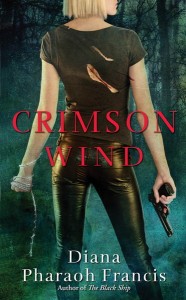 On the other hand, people who read romance might never wander into the sf/f, because they believe that all that they want will be shelved in the romance aisle. But for instance, Ilona Andrews, Patty Briggs and Laura Anne Gilman are typically shelved in fantasy, but they all have strong romantic elements. On the other hand, Jeaniene Frost, Karen Moon Moning and Meljean Brook are typically shelved in romance, and they have very strong fantastical elements beyond the romance elements. But they can only be in one section. And that doesn’t cover young adult writers like Melissa Marr or Lisa Mantchev. I remember going into a bookstore and I couldn’t find Richelle Mead. She was in literary fiction, where I never would have looked. Wouldn’t it be nice if they were all together?
On the other hand, people who read romance might never wander into the sf/f, because they believe that all that they want will be shelved in the romance aisle. But for instance, Ilona Andrews, Patty Briggs and Laura Anne Gilman are typically shelved in fantasy, but they all have strong romantic elements. On the other hand, Jeaniene Frost, Karen Moon Moning and Meljean Brook are typically shelved in romance, and they have very strong fantastical elements beyond the romance elements. But they can only be in one section. And that doesn’t cover young adult writers like Melissa Marr or Lisa Mantchev. I remember going into a bookstore and I couldn’t find Richelle Mead. She was in literary fiction, where I never would have looked. Wouldn’t it be nice if they were all together?
If you are shopping electronically, wouldn’t it be nice to be able to click a category and see all the kinds of books that you love? (though in electronic indexing, you could put books in multiple categories, which doesn’t happen in bookstores—there is only so much shelf space).
Regardless of the name, however, this genre is not dying. Not by a long shot. Thank goodness. It looks like I’ll never run out of my favorite stuff to read. And hopefully I’ll keep being able to write what I love as well.
So let me ask you two questions. Do you think the genre is dying? Or maybe you might think it should die. And where do you find books to read? Do you cross out of your normal aisles and look more widely?
Bio:
A professor of English at the University of Montana Western, Diana Pharaoh Francis is also a writer of fantasy. Her novels include the Path series and the Crosspointe Chronicles by Roc books, and the Horngate Witches books from Pocket. She likes to write flawed characters struggling with making good choices (and frequently failing). She believes evil should be punished and good should triumph. Eventually. But figuring out which is which is sometimes very difficult. Her next book, Crimson Wind, will be hitting shelves in December. For more on Diana Pharaoh Francis and her books, go to www.dianapfrancis.com
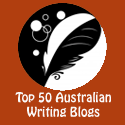 And a nice bit of intawebby stuff.
And a nice bit of intawebby stuff.



















